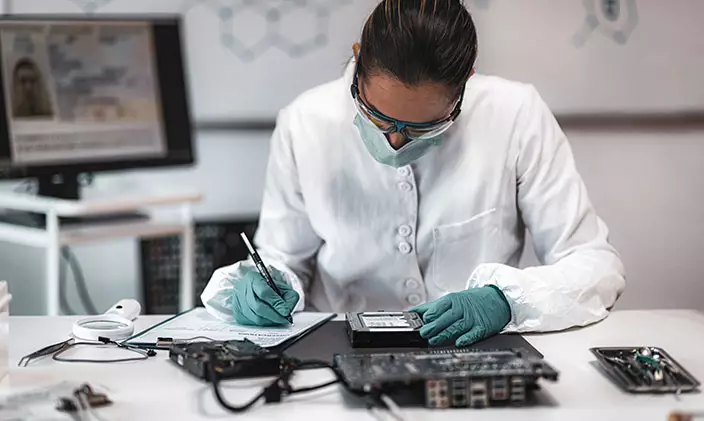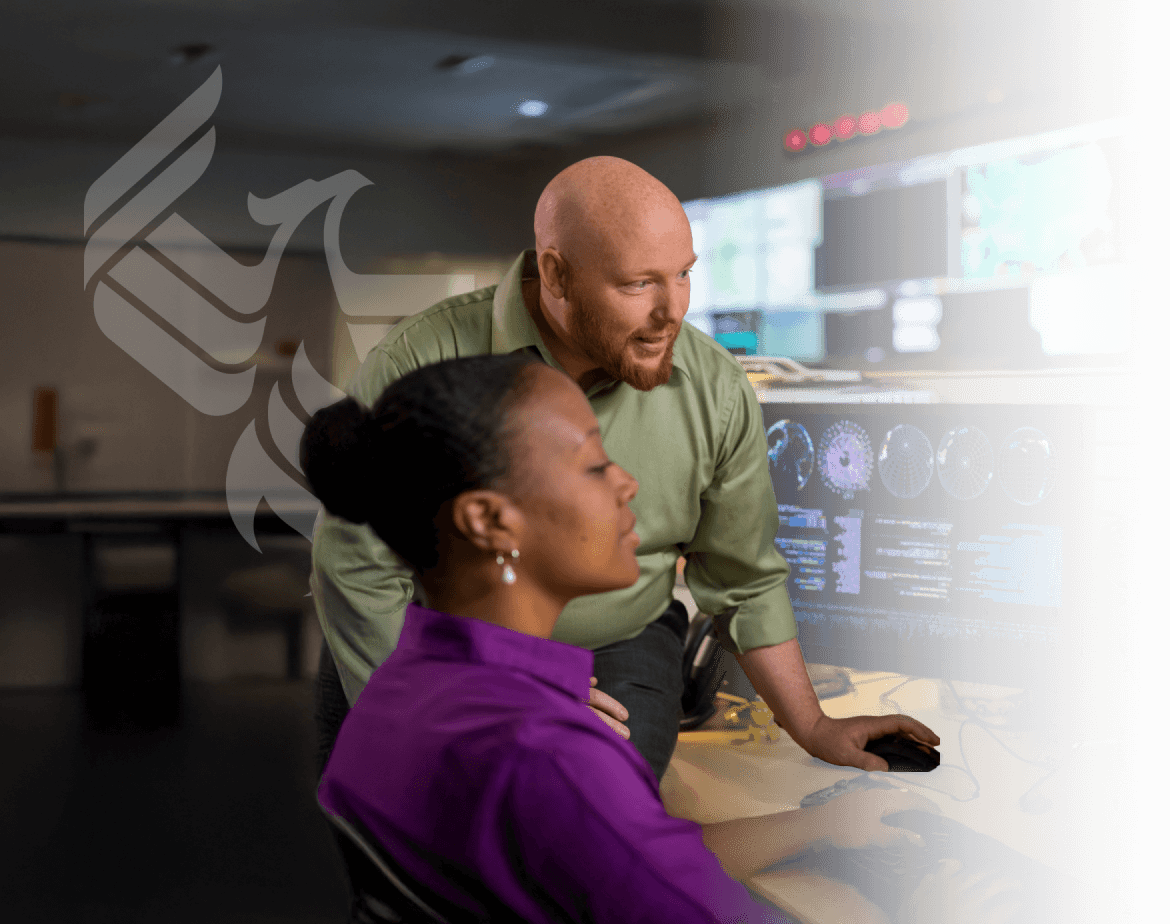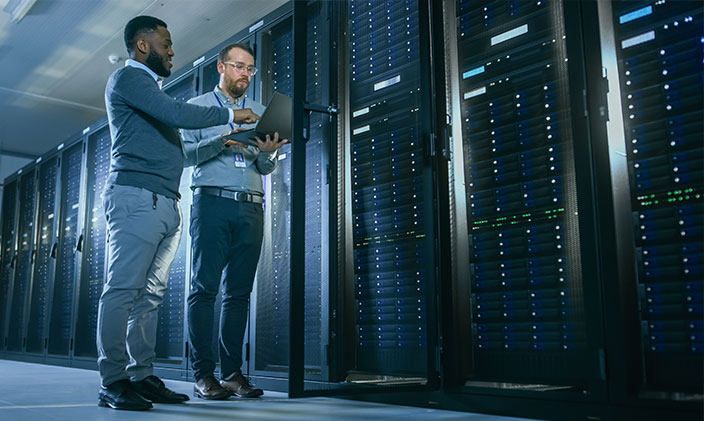Articles > Information Technology > How does digital forensics help solve crimes?
How does digital forensics help solve crimes?

Written by Michael Feder

Reviewed by Kathryn Uhles, MIS, MSP, Dean, College of Business and IT

Many people are familiar with the field of forensics, which involves collecting physical evidence from a crime scene and analyzing for clues about what happened. Digital forensics, another investigative specialty, is lesser known — wherein the “crime scenes” are computerized devices. Because of the universal use of computerized devices, experts in this area are essential for investigations across law enforcement agencies. Here is an in-depth look at this growing field.
What is digital forensics used for?
Digital forensics experts are called in when it's suspected that a suspect or victim's computer, smartphone and embedded systems in other digital devices contain information about their location, communications, web searches and application usage. This data can often serve as evidence in cases involving physical crimes and unlawful activity in the digital realm.
For example, a digital forensic expert can extract GPS data from a suspect’s smartphone to see their location at a specific time. They might also look at the files and code on a hacker’s computer to find evidence of security breaches or stolen data.
With cybercrimes, the investigation usually starts on the victim’s computer or network, where forensics experts can learn the source and methods of the attack.
Hackers often display a pattern of activity when carrying out an attack. These digital footprints can serve as evidence or lead investigators to incriminating files, devices or software.
Why is digital forensics important?
Cybercrime is extremely common. In 2024, the FBI received 859,532 cybercrime complaints, and potential losses from these events exceeded $16 billion. That's 33% more than in 2023.
The physical evidence of these crimes can be found on computers, hard drives and mobile devices. But it’s not enough to simply hold the devices in custody. Agencies need forensics investigators to extract data from these items to build a case. In many instances, the incriminating data is on cloud servers that must be accessed remotely.
Digital evidence can be difficult to handle because it can be altered or erased remotely. Digital detectives need to establish the chain of custody, which is necessary for keeping the information admissible in court.
Forensics investigators can use the data on digital devices to find out when a crime occurred, what methods were used, and who was involved. The information can lead to arrests and serve as evidence in court. Some forensics experts are even witnesses for criminal prosecutors during court cases.
Cyber investigations are also important for prevention. Forensics experts in digital systems find out about new methods hackers use while collecting evidence. They can share these techniques with cybersecurity specialists, who can develop ways to protect against these new techniques.
What steps are taken in digital forensics?
Digital forensic investigators need to use a methodical approach in their work. Although the techniques digital investigators use can be similar to those of detectives at physical crime scenes, the tools are quite different. Digital investigations occur in a series of very distinct steps.
- Collection and identification — Experts need to identify specific files or information as important to their investigation. They may search for files or inspect a device’s activity log to find out which software and applications the user opened. Often, investigators will know a few details about a crime and will use this knowledge to help focus their search.
- Preservation — Once they have files, devices or lines of code, investigators will protect them from being changed. This will include copying or saving the information and disconnecting devices from the internet. In addition to avoiding accidental changes, forensics workers want to ensure that hackers cannot remotely access the evidence to alter or erase it.
- Examination — Once the evidence is secure, investigators can examine it. The goal is to answer questions about the crime, such as who did it and when and where it happened. One example of examination could be looking at EXIF metadata in a social media photo to find out where it was taken.
- Analysis — These cases often involve many different pieces of data. Investigators need to analyze them together to build a more complete picture of the criminal activities.
- Building a case — The final step is to document the findings so that other investigators and legal experts can find the perpetrators and build a case against them.
What is the difference between computer forensics and digital forensics?
The terms computer forensics and digital forensics are often used interchangeably. Both fields are closely related because they deal with computerized devices. However, computer forensics typically deals with desktops, laptops, servers and hard drives.
Because of the prevalence of these systems, digital experts are often part of investigations for both physical crimes and cybercrimes.
What techniques do digital forensics investigations use?
These specialized investigators use specific techniques to carry out their inquiries. Here are some additional investigative methods cyber investigators use:
- Software toolkits — Forensic experts use special software to examine the contents of devices and files.
- Network analysis — Investigators often look at traffic and activity history on a network.
- File recovery — Investigators usually need to find and recover deleted files, which is often possible with the help of software.
- Live analysis — This involves collecting information, such as software, files and metadata, from a device while it’s running. It can also include collecting encrypted files for later decryption.
- Malware forensics — This focuses on finding and examining malware programs on a system to get information about their origin.
- ISP and file monitoring — In some cases, forensics experts can locate suspects by allowing them to access a compromised file or network and then tracking them digitally.
How does someone become a digital forensics investigator?
Digital forensics investigators are computer scientists who use their skills to find and collect evidence from computers, mobile phones, tablets and other digital devices. They coordinate with attorneys and other investigators to collect evidence and locate those responsible for criminal activities. There are several ways to start a career in this area. All career paths begin with obtaining the necessary technical knowledge and learning investigative techniques and requirements.
Education requirements
Most employers expect digital forensics investigators to have a bachelor’s degree. An information technology (IT) or cybersecurity degree will teach skills to work in this field, with a computer science degree serving as a possible alternative.
Necessary skills
Digital forensics investigators need a wider range of skills than other tech professionals.
- Technical abilities are essential, including understanding computer and device systems and being able to see lines of malicious code or metadata among pages of unimportant code.
- Attention to detail is a vital attribute. Again, a single line of code could hold the key to solving a case and finding a suspect.
- Deduction skills are important. Despite working on computers instead of in the field, forensics specialists are still investigators whose primary job is to solve a crime using logic and deductive reasoning.
- Communication is a part of every investigator’s job. Whether working with other cyber investigators, field agents or prosecutors, forensic professionals need to coordinate activities with them so that everyone is working toward a common goal: solving the case.
Learn more about digital forensics in an IT and cybersecurity program
Whether you’re seeking to gain a basic understanding of cybersecurity and other IT skills or you’re a working professional looking to expand your knowledge, University of Phoenix offers online course collections and bachelor’s degrees.
- Certified Ethical Hacker Course Collection
- Computer Hacking Forensics Investigator Course Collection
- Bachelor of Science in Cybersecurity
- Bachelor of Science in Information Technology
Contact University of Phoenix for more information.

ABOUT THE AUTHOR
A graduate of Johns Hopkins University and its Writing Seminars program and winner of the Stephen A. Dixon Literary Prize, Michael Feder brings an eye for detail and a passion for research to every article he writes. His academic and professional background includes experience in marketing, content development, script writing and SEO. Today, he works as a multimedia specialist at University of Phoenix where he covers a variety of topics ranging from healthcare to IT.

ABOUT THE REVIEWER
Currently Dean of the College of Business and Information Technology, Kathryn Uhles has served University of Phoenix in a variety of roles since 2006. Prior to joining University of Phoenix, Kathryn taught fifth grade to underprivileged youth in Phoenix.
This article has been vetted by University of Phoenix's editorial advisory committee.
Read more about our editorial process.


Get your free IT Program Guide
Learn how 100% of our IT degree and certificate programs align with career-relevant skills.
Thank you
Download your pdf guide now. Or access the link in our email.

